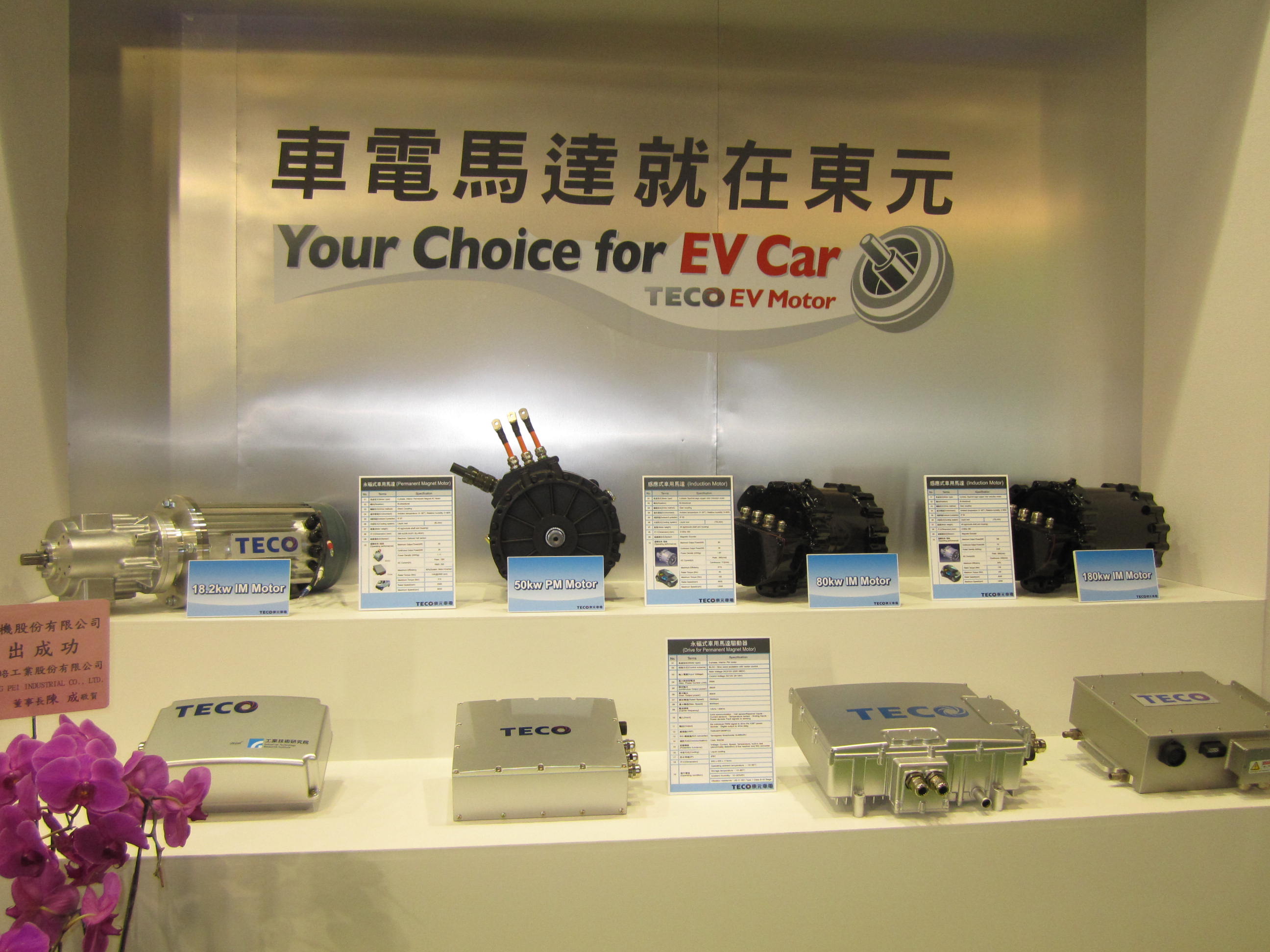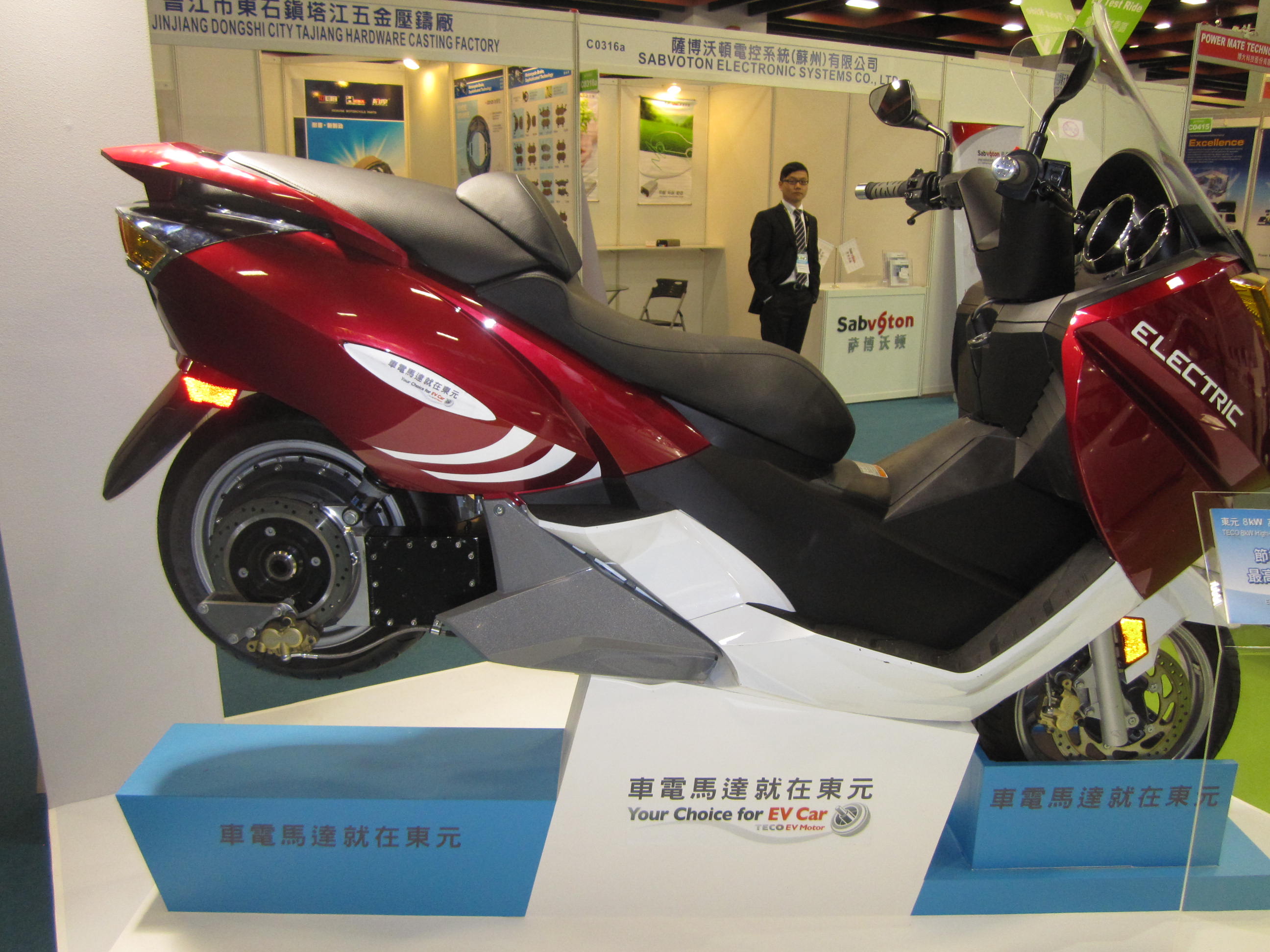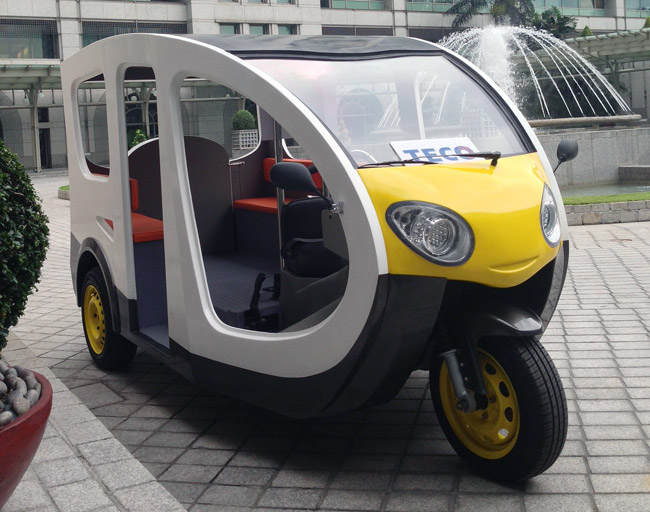Teco Wins EV Order from the Philippines
2014/02/25 | By Quincy Liang
Teco Group, a leading electro-mechanical and home-appliance conglomerate in Taiwan, recently announced having landed orders for special-purpose electric vehicles (EV), from the largest fleet operator in Manila, capital of the Philippines, for 14- and 21-seat electric jeepneys, the most popular means of public transportation in the nation.
Teco said that it will invest about US$10 million to set up an EV production base in the Philippines with monthly production capacity of 200 electric buses and 500 electric tricycles initially.
The group has been aggressively developing business in EV-related fields, participating in domestic Yulon Group's assembled battery electric vehicle (BEV) development project and pushing a comprehensive range of motors for two-, three- to four-wheel EVs. As a niche marketing strategy, Teco chose to push a series of special-purpose EVs as stepping-stone into the global EV market. The company has won a local bid for 800 electric utility vehicles for use at a big agricultural-product marketplace in central Taiwan.
Teco Group's chairman Theodore Huang recently visited the Philippines to introduce Teco-developed electric tricycles, including 3+1- and 6+1-, and 14-seat models, to representatives of Asia Development Bank (ADB) and Philippine government officials. Huang said that his group has focused on EV development for more than five years, and will kick off small-batch volume production this year.

A manager of of Teco's EV business pointed out that some 3.5 million 2-stroke, gasoline-powered tricycles are being operated in the Philippines as short-distance taxis, including about 350,000 in the Manila region. Jeepneys are modified American military jeeps with used Japanese diesel engines. Every day about 70,000 to 80,000 Jeepneys run in urban Manila, with about 4.6 million persons riding Jeepneys daily in the Philippines.
To cut air pollution in the Philippines, the Asian Development Bank (ADB) is providing US$300 million towards a groundbreaking project that will replace 100,000 gasoline-burning tricycles with clean, energy-efficient e-tricycles. Teco has entered the final-stage e-trike replacement government bid, rivaling Korean and Japanese counterparts.

The e-trikes run on electric motor and rechargeable lithium-ion battery will be introduced to Metro Manila and other urban centers across the Philippines under a lease-to-own arrangement. Replacing 100,000 gasoline-powered trikes will enable the Philippine government to save more than US$100 million a year in fuel imports, while decreasing annual CO2 emissions by about 260,000 tons, industry sources said.
The Teco executive added that his group is eyeing both the government-bid and private-enterprise EV market in the Philippines. In January, he added, Teco signed a cooperation letter of intent (LOI) with the largest transport-fleet operator in the nation to supply 1,000 electric jeepneys, as well as fleet-management systems and the 'touch-and-go' IC ticketing system similar to that used in Taipei of Taiwan.
Teco plans to pour about US$10 million for the land and factory to turn out e-trikes and Jeepneys initially and most likely in Subic Bay near Manila.
| Teco's Green-energy Biz Deployments | |
| Wind Power Turbine
| Teco just won a right to install 300 2MW (million-watt) wind power turbines in Hunan Province, China. In Taiwan, the company is scheduled to participate in a off-shore wind-power pilot project in central Taiwan, and install 30 5MW wind turbines.
|
| Special-purpose EV
| First Targeting at the Filipino market. Already won a order for electric jeepneys, and is taking part in the ADB / government e-trike replacement bid. Teco is scheduled to set up a EV assembly factory in the Philippines in 2014.
|
| Nano Carbon-tube Touch Sensor
| Teco kicked off production of nano carbon-tube curved touch sensors in December 2012, for Chinese smartwatch makers.
|
| Vacuum Energy-saving Glass
| Teco and local Taiwan Glass have set up a joint venture to produce energy-saving insulting glass. The venture is mainly operated by Taiwan Glass, and also aims at the Chinese market.
|
| Source: Teco.
| |




